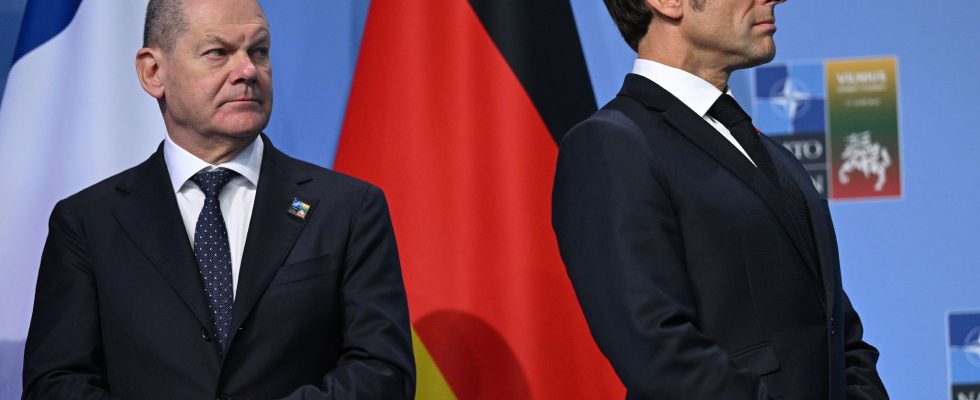“We don’t agree on anything.” Without any hesitation, in the cozy setting of the conference of ambassadors, the German Minister of the Economy, the “Green” Robert Habeck, summarized at the beginning of September the state of current relations between France and Germany. In Brussels, there is despair over this gap, attributed to the fact that the three parties forming the coalition in power in Berlin (liberals, socialists and ecologists) are themselves struggling to find consensus. In the corridors of the institutions of the European Union, no one is unaware that when the French and the Germans, who embody two different visions, agree on a subject, many others, in general, agree.
However, it is clear that the engine is broken. The list is long of issues on which the two partners cannot agree. The most problematic concerns the reform of the European electricity market. If Paris is pleading for nuclear power to be recognized as a green energy, Berlin, which renounced it when Angela Merkel was chancellor, refuses to allow it to benefit from community subsidies. Another subject of contention: the German initiative of the “European Sky Shield”: Berlin has not incorporated the ground-air system that the French developed with the Italians, the SAMP-T (or “Mamba”). Emmanuel Macron has repeatedly expressed his annoyance on this subject.
Stick the pieces back
At the invitation of Chancellor Olaf Scholz, the French president met him in his city of Hamburg on October 9 and 10 to pick up the pieces as best he could. But this time in an informal setting, a bit like an integration seminar: “We’re going boating, walking on the Elbe, eating Brötchen [NDLR : petits pains] to fish and discuss the medium and long term”, explained an Elysian advisor. No final statement is to be expected. It must be said that it could be disappointing: nothing new came out of the Franco Council of Ministers -Germans on January 23, on the occasion of the 60th anniversary of the Elysée Treaty signed by General De Gaulle and Chancellor Konrad Adenauer.
“It’s a good thing that there is a desire for a new working format, smaller and more operational,” says Eric-André Martin, secretary of the Ifri Franco-German Relations Study Committee. and author of a new study, “How the Ukrainian war forces Germany to rethink its model“These councils of ministers where the mere fact of coming together is a value in itself are no longer necessarily the right way to find common solutions.” Beyond the angry subjects, on which it will be difficult to agree, the French and German leaders have planned two working sessions with their ministers, on artificial intelligence and the transformation of industrial societies. Objective: to open “Franco-German avenues that can feed the European agenda” and “put concrete initiatives on the table”.
This out-of-frame initiative is reminiscent of another. In 2000, the differences on the reform of European institutions and the common agricultural policy, brought to light during a summit in Nice, resulted in a crisis of confidence between French and Germans. To avoid a rupture, President Jacques Chirac and Chancellor Gerhard Schröder began speaking directly to each other, in a small group, in the informal setting of an Alsatian restaurant in Blaesheim, Alsace. “They were two bon vivants, there is not the same potential for alchemy between the austere Scholz and Macron, with very different temperaments, but they know that they have no other choice than to find ways of moving forward, to guarantee Europe’s place in the world”, underlines Eric-André Martin. In Brussels and elsewhere, we hope that the walk on the banks of the Elbe will mark a new beginning.
